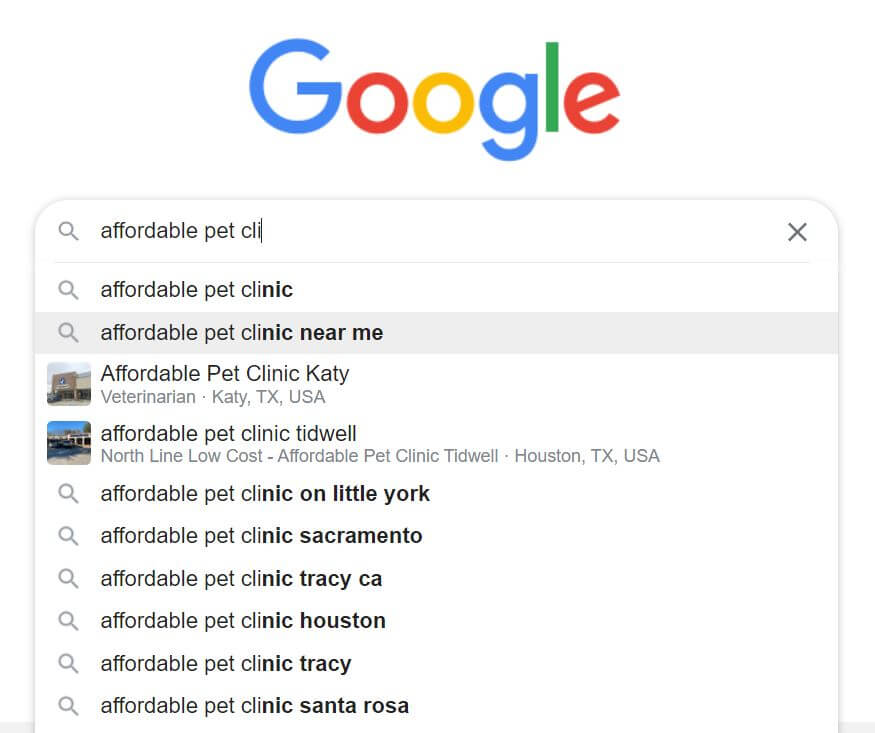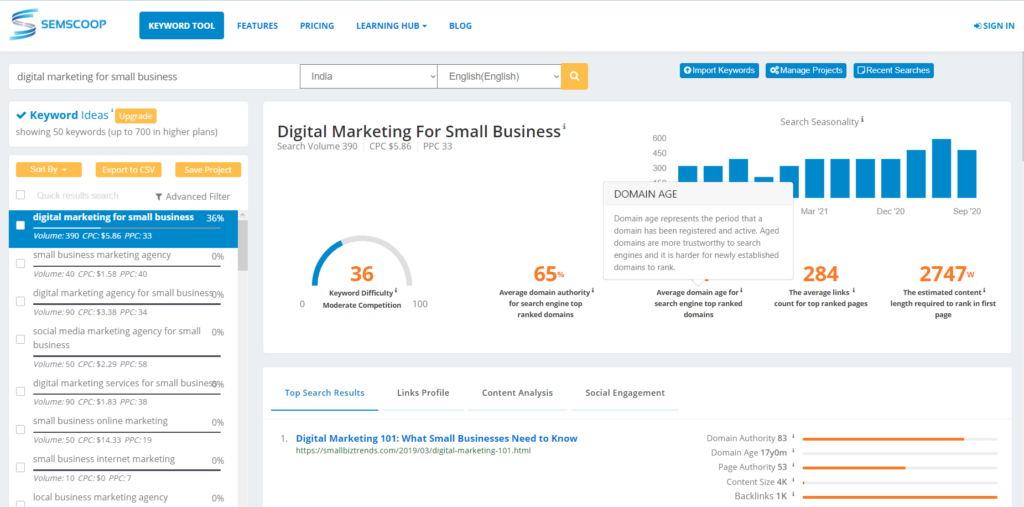Today, I am going to tell you how you can conduct a keyword research for a small business.
Small business owners and bloggers often find themselves overwhelmed by the thought of selecting and analyzing keywords to use in their articles. It is indeed a tedious task, but it is an essential one.
Having measurable goals to work towards will make you employ effective keyword search strategies without requiring too much time to work on them.
Alright, let’s dive into it.
Why keyword research is important?
Keyword research is extremely important, regardless of the size of your business or where you are in your industry.
You can easily find yourself paying hundreds of dollars to an agency for this information. For many small businesses, it’s difficult to justify spending that money.
Keyword research can provide important details such as where you rank for keywords, which keywords are simple to rank for, and which keywords your competitors rank for.
Keyword research might reveal what people are looking for, not what you believe they’re looking for.
Keyword research steps for small business
1. Create a primary list of keywords
A primary list is required in order to generate a keyword list for SEO. All of your keyword research efforts will be built on the foundation of the primary list.
Keywords related to your offerings could be included in a primary list. Let’s have a look at an example. If you own a pet clinic in your town, your primary keyword list might include phrases like “pet clinic,” “pet clinic in Mumbai,” “best pet clinic,” and “cat clinic.” etc.
These keywords are useful, but they are difficult to rank for because other pet clinics in your town may be competing for the same keywords.
The idea is to use a long tail keyword in this case. We’ll get to that in a minute.
2. Use Google keyword planner.
Keyword planner is Google’s tool for doing keyword research. It captures the search volume, cost per click, competition, and other aspects related to keywords.
Since keyword planner is a free tool by Google, it has gained dominance in the market of SEO tools.
If you are new to Google keyword planner, the checkout below blog post.
How to effectively use Google keyword planner
3. Use Google Suggestions
Using Google suggestions for keyword research is a great source of new and fresh ideas. It’s great for discovering keywords for blog posts and longtail keyword phrases, etc.

You may check the suggested keywords by typing the keywords you got from Google keyword planner into Google. This is a fantastic technique to discover longtail keywords and come closer to ranking for them.
3. Find long tail keywords with Answer the public
Answer the public is a keyword research tool that collects real search engine queries from Google and Bing, and reverse it to find related keywords.
This keyword research tool looks at questions, rather than searches. It then filters out irrelevant or spammy results to give you the best possible choices.
Enter your main topic into the tool and wait for the magic to unfold. This tool will generate a list of long tail keywords for you to incorporate into your content.
4. Make use of Reddit and Quora to find more keywords
I prefer using Reddit and Quora to gather more keywords than just using Google Keyword Planner. It works really well.
Because the keywords on Reddit and Quora are in the form of questions, using them will not only save you time, but it will also help you enhance your SEO strategy, traffic, and conversion rates.
Finding keywords with a good search volume, low competition, and high converting traffic is difficult. It is, nonetheless, doable.
The trick is to locate low-competition keywords with higher conversion rates than your normal traffic source.
Reddit and Quora are obvious places to start looking for these types of terms because they’re two of the most popular websites on the internet.
5. Analyze and finalize your keywords to write on
By now, you might have a list of your primary keywords and long tail keyword.
Now you need to study those keywords and check if you can write the content on.
SEMscoop is the best tool to analyze the keywords.
The SEMScoop keyword tool is more than simply a keyword research tool; it’s a weapon you can use against your competitors, giving you with powerful SEO metrics and competition data. To study a keyword, type it into the SEMScoop keyword data analysis bar and press the search button.
After you’ve entered your keyword, double-check that you’ve selected the appropriate language and location for you. It’s important to remember that language influences the generated keyword language, and location limits the number of search results to the location you choose at the start; also, Google’s top 10 results are influenced by the location you choose.
After using the search button, we are presented with the following:

Once you’ve completed the analysis, you’ll have a good sense of which keyword to utilize.
Note: Apart from the above-mentioned tools, you can make use of some other keyword research tools as well. Here are some of my recommendations.
Best keyword research tools
Here is a list of few best keyword research tools you can try.
- SEMrush
- Ubersuggest
- Ahrefs
- Long Tail Pro
- Serpstat
Read in detail: [10 Best keyword research tools for small business](http://pritamc.com/keyword-research-tools-for-small-business/(opens).
To Conclude
Keyword research is not just an SEO technique, it should be one of the key components to your marketing strategy.
Keyword research is an essential part of SEO that doesn’t get much attention, but without it, your search engine optimization campaign will fail.
Keyword research is one of the most important parts of Search Engine Optimization (SEO), yet it is something most people either completely overlook or simply do not know how to do properly. If you are trying to optimize your website for specific keywords, then keyword research is an integral part of that process.
When you are choosing your keywords, you want to make sure they are the right ones. Keywords with high search volumes are great, but they can be competitive, so it is a good idea to go with a long tail keyword first.
If you are new to digital marketing, you should check out this post: Digital Marketing for Small Businesses
